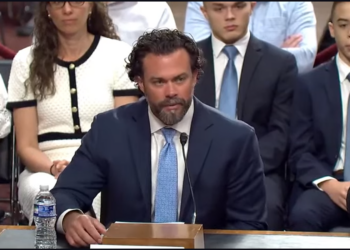“I Love You, Man” was the title of a 2009 comedy/romance movie about an engaged man who had no male friends. His fiancée encouraged him to make a friend who could serve as his best man in their wedding. Movie reviews referred to it as a “bromance.” I remember the phrase being used frequently by guys back then in what could only be described as mild sarcasm. Today’s equivalent would be “Best Friends Forever” (BFF).
The term “bromance” is coming back around in the news media. We are in the midst of a major bromance fallout between our current president and his most famous campaign supporter. Any friendship, especially worldly friendships, can be a slippery slope. All it takes is an ill-timed comment or personal slight to send high-flying friendships crashing to earth.
Sadly, I see a half-hearted “I Love You, Man” proclamation being made by many Christians today when it comes to a profession of faith. Jesus is now the eternal BFF, and while it’s not proclaimed with the sarcasm from 15 years ago, it lacks the ring of sincerity. Jesus gave the characteristics of those who truly love Him when He told the disciples, “If you love me, you will keep my commandments.” (John 14:15, ESV)
Before you freak out and think I’m being legalistic, Jesus simplified it so that even a Marine can understand it. When asked what the greatest commandment was, Jesus replied, “You shall love the Lord your God with all your heart and with all your soul and with all your mind. This is the great and first commandment. And a second is like it: You shall love your neighbor as yourself. On these two commandments depend all the Law and the Prophets.” (Matthew 22:37-40)
Simply stated, all of my actions should fall into one of these two categories: loving God and loving my neighbor.
The problem is I am not able to love my neighbor unless I am loving God first. My sinful nature has no sacrificial love to give apart from His love flowing through me. The Westminster Shorter Catechism opens with this simple statement: “Man’s chief end is to glorify God, and to enjoy him forever.” My ability to do that begins with worship, and “I Love You, Lord” is the worship song with which I end most of my morning devotions:
I love You, Lord, and I lift my voice,
To worship You, O my soul rejoice.
Take joy, my King, in what You hear,
May it be a sweet, sweet sound in Your ear.
The song I sing is not as important as the sentiment I am cultivating. All obedience springs from a worshipping spirit. In his book Whatever Happened to Worship? A. W. Tozer gives us this insight: “I think we join the winsome saints when God’s purposes in Christ become clear to us. We join them when we begin to worship God because He is who He is.”
Only a worshipper can truly walk in obedience to King Jesus and joyfully keep His commandments. It is worship that changes our carnal “I Love You, Man” to a worshipful “I Love You, Lord!”
What say ye, Man of Valor?
Semper Fidelis!
















